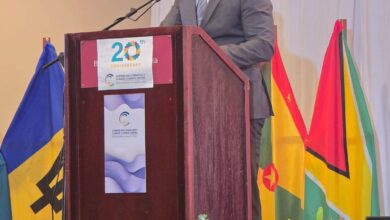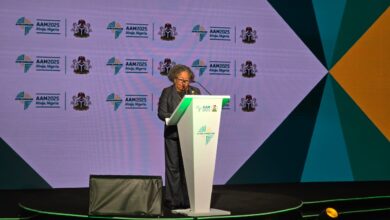CARICOM Ministers at the Fourteenth Meeting of the Council for Trade and Economic Development (COTED) which met in Georgetown, Guyana on 31 January – 1 February 2003 expressed deep concern regarding the challenge to the European Union (EU) sugar regime launched by Brazil/Australia at the World Trade Organisation (WTO) in September 2002. This challenge, if successful, would be disastrous for CARICOM Countries whose economies depend vitally on their sugar industries. Ministers considered this challenge as the most serious threat to CARICOM’s most important agricultural crop.
Ministers stressed that the threat to the EU Sugar Arrangement would have a devastating impact on the social and economic situation within the Region given the inextricable link between these arrangements and the Sugar Protocol and the Special Preferential Sugar Arrangement (SPS) in terms of price and market access.
The Sugar Protocol is a preferential agreement of indefinite duration under which CARICOM and other African Caribbean and Pacific (ACP) countries export sugar to the EU at guaranteed prices. The Special Preferential Sugar Agreement introduced by the EU in 2001 allows the importation of additional quantities of ACP sugar at a price below the sugar protocol price but above the world market price.
Ministers observed that while CARCOM sugar producing countries produced less than 750,000 tonnes of sugar per year and together with the rest of the ACP producers, represented less than five percent of the world market, Brazil and Australia produced more than 22,000,000 and 4,500,000 tonnes of sugar respectively. They emphasised therefore that CARICOM posed no threat to the trade interests of Brazil and Australia in sugar. Furthermore the role of sugar in the small vulnerable economies of the Region proportionately is of far greater importance than it is in the large more developed and diversified economies of Brazil and Australia. Sugar is by far the largest contributor to agricultural Gross Domestic Product (GDP) in many CARICOM countries and in some it is the largest contributor to total GDP and the largest single employer of labour.
Ministers emphasized that access to the EU market is critical to the sugar industries of the small, vulnerable economies of CARICOM and pointed out that the Region’s sugar sector would be destroyed if access to the EU market is reduced and prices cut significantly as a result of the challenge.
Ministers noted that under Article 36 (4) of the Cotonou Agreement the EU is committed to retain the benefits of the Sugar Protocol and expressed concern that efforts to ensure that this commitment is fully met could be complicated by the challenge.
Ministers also noted that the EU/ACP Sugar Protocol was among the few remaining practical examples of Special and Differential Treatment for a group of small, vulnerable developing countries and recalled that Special and Differential Treatment is an integral part of all WTO Agreements. Ministers took note of the renewed commitment to Special and Differential Treatment in the Doha Development Agenda,
It was noted that CARICOM, together with other ACP countries threatened by the Brazil/Australia challenge, had participated in the consultations between Brazil and Australia and the EU in November and in those consultations had vigorously represented the concerns of the Region and the ACP as a whole.
Ministers agreed to a draft strategy to address the concerns arising from the challenge including further technical studies and intensified lobbying. In this context Ministers endorsed CARICOM’s participation in the ACP Ministerial lobbying mission to Brazil to be undertaken by Ministers comprising the Enlarged Bureau of the ACP sugar group consisting of Mauritius, Fiji, Guyana and Swaziland on February 7, 2003.





